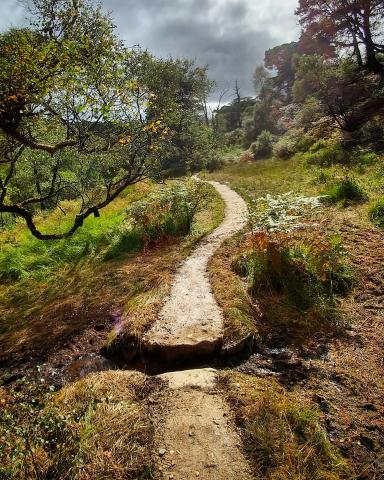A Head of Conservation will be responsible for managing the staff who carry out environmental monitoring, provide comments on the environmental impact of proposed developments, and investigate and enforce environmental legislation for air and water quality, flood management, land management, contaminated land and noise from commercial and industrial premises. They may also have responsibility for waste management at a District or County level.
The work of countryside or conservation staff, ecologists, archaeologists and public rights of way and access teams is also likely to fall within a Head of Conservation’s remit.
They will provide strategic, policy and technical advice and logistical support for environmental management, and work with senior colleagues in other departments and authorities at a strategic level. They will be required to have up-to-date knowledge and understanding of environmental legislation and policies at national, regional and more local levels, with knowledge ranging from climate change, to commercial land management, to the environmental impact of industry, to the conservation management of habitats for biodiversity.
Typical work activities may include:
- Providing strategic, policy and technical advice as well as logistical support for the delivery of environmental management
- Planning and organising for staff to undertake environmental audits and impact assessments, for example in relation to significant development proposals
- Ensuring compliance with environmental legislation
- Promoting and raising awareness, at all levels of an organisation and between organisations, of the impact of emerging environmental issues, whether legislative or best practice, on corporate, ethical and social grounds
- Co-ordinating public hearings and consultations on environmental matters
- Participating in environmental education and research.
It is important for a Head of Conservation to have expertise in sustainable environmental management and to have a sound understanding of related issues and conflicts. Political awareness is often highly desirable.
A Head of Conservation might typically be employed in a government, non-government or local authority structure. However, senior positions with large environmental Trusts and Societies, and with national and international environmental campaigning organisations, might also fit this career profile. In a smaller conservation organisation the equivalent level of responsibility might be at Chief Executive level.
Working Conditions
A Head of Conservation generally works full-time hours a week. However, as this type of work involves working with many different groups of people, evening and weekend work may occasionally be required.
There is likely to be direct management responsibility for large budgets and a significant, multi-skilled staff team.
Excellent communication, networking, presentation, influencing, staff management and budget management skills will be required. Sound political awareness and expertise in the development and implementation of environmental policies is also highly desirable.
Salary
Salaries vary with experience, qualifications and between companies, but here's a guide to what you can expect.
£50,000
£80,000
Getting started
Relevant qualifications
A Head of Conservation will typically be qualified to Degree level and might usually be expected to have an additional Postgraduate and relevant professional qualifications. Professional membership of a relevant Institute is a distinct advantage.
What experienced workers can do
- Consult and work with the local community
- Develop a strategic business plan for your organisation
- Ensure compliance with legal, regulatory, ethical and social requirements
- Produce reports on environmental performance
- Produce an up-to-date plan of the business
- Communicate key messages to stakeholders
- Determine and agree policies for the development of land-based sites
- Determine and assess potential sources of funding
- Ensure a healthy and safe workplace
- Seek to influence decision makers to take account of land-based issues.
Personal qualities you should have
- Ability to communicate with a variety of people
- Flexibility
- Motivated
- Able to work with a team.
Next steps
A Head of Conservation will continue to learn from experience and undertake training and continuous professional development. Career development often depends on the size and structure of the employing organisation and progression may require moving to a bigger or more specialist employer.
There may also be opportunities to specialise in environmental campaigning or global issues.
Useful links
Loch Lomond and the Trossachs National Park
Scottish Environment Protection Agency
